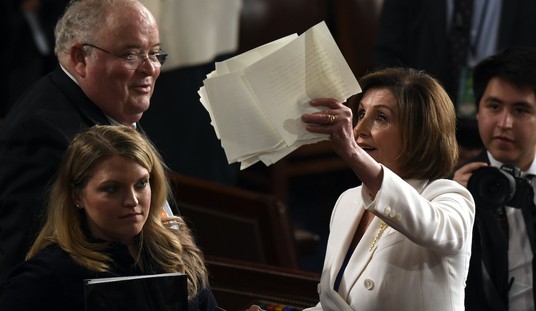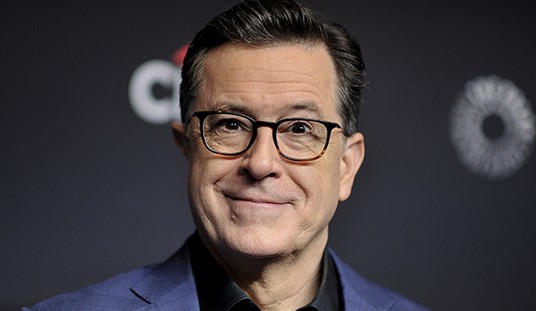Policy
The bank typically contacts the company with short notice, somewhere around thirty days is the average. It comes in a phone call. Nothing is written down by the bank that can create a paper trail that the denial was based on arbitrary prejudice against a company. The termination letters say only that on such and such a date all accounts will be closed, any outstanding fees deducted from balances, and cashier’s checks will be mailed to the former customer. No regrets. No goodbyes. This is gaslighting, the business edition.
Cloak and Dagger Bullying
It is a dark, murky, under the table world when a bank decides to cut off lending, credit and services to a firearms company. It leaves companies bullied, fearful and gun shy. Even after finding a new banker, which typically takes three to four attempts, their lawyers counsel flying low to avoid the radar.
Company officers interviewed for this article have shared their tales of betrayal. It’s all off the record. They are unwilling to air their grievances in public. They fear for themselves. They also fear for their new banker becoming the target of social media’s viral activism.
Between the notice and the end date, the company embarks on a journey looking for a new bank. Their healthy balance sheets, strong income statements, robust sales flowing through their merchant services accounts taking in orders over the phone and online, and payroll services all looking for a new home. These are the characteristics of businesses that US commercial banks should be competing to add to their client book.
But the companies quickly find that its not that easy to open new accounts; not even at banks that they had formerly done business with. The branch manager may be happy to sign up the company. But as soon as the account is passed up the line, risk managers at the corporate level intercede. A game of questions to which answers only raise more questions begins slowly wearing down the company’s patience.
Basically, the bank wants the company to decide to go away without having to say no. Once again, it is all verbal. Nothing gets written down that might implicate the bank that it is engaging in unfair business practices. All the while, the clock counts down to the day when the company has merchant service to process orders at points of sale or online, no way to pay employees, not even a checking account.
Hushed Tones
These days, gun companies mostly rely on each other to find bankers who will quietly take their business. But they must never be named. These banks don’t advertise that they want the business. They are nearly impossible to find unless you know someone who will refer you in the same way people found speakeasies during Prohibition.
Sadly, criminal cartels probably have an easier time laundering money than legitimate businesses in disfavored industries doing millions of dollars of legal business have obtaining the lending, credit, and services they deserve.
It’s Getting Worse
It’s important to note that the banks know they are skirting the law here. The issue of fair access to bank services was settled in rules laid down in 2015 at the end of Operation Chokepoint, an initiative that denied banking services to companies was declared defunct. But some banks continued the practice setting up a “Banking vs. the Second Amendment” fight that I wrote about in January 2020.
As recently as July 2020, the practice continues with banks quietly carrying on with their maximize plausible denial methods.
Wells Fargo Risks Reputation Over Private “Chokepoint” Policy Against Gun Industry
Consolidation of the US banking industry is only serving to concentrate the problem for companies running out of options for banking services.
There used to be almost nine thousand banks in the United States. That number has dwindled to just over five thousand depository institutions today. More significantly, out of the total number of banks, there are only around two hundred large banks in America.
These mergers make these banks more susceptible to social pressure; pressure that is causing them to act unfairly against companies that do not “fit” cleanly into the cookie cutter molds of political correctness. These banks ultimately start to align their social polies as consultants and lawyers carbon copy each other. There are few mavericks willing to take the money these banks a leaving on the table; however, nearest I can tell, there are none willing to say so in public for fear of the backlash in the press and social media arenas.
It’s Bigger than Just Guns
It not just the firearms industry that is affected by discriminatory bank practices. Pretty much any industry that raises the ire of activists is getting the same scarlet letter treatment. Oil exploration, nuclear power, cannabis, payday lending, you name it. If it attracts trolls on Twitter, the banks get as far away from ground zero as possible.
The mainstream media tends to cover the subject of banks failing to provide services to companies by focusing on these other industries. Recently, the funding of Arctic oil exploration was the “politically discussable” angle on this story. This is nothing but a variation on Operation Chokepoint being applied by banks to anything their sustainability and social responsibility department arbitrarily declares to be a reputational risk.
The bottom line is that business access to the economic engine of America is in a lot of trouble. Too many legitimate businesses “no longer fit the business model” of the banks. Like the social media and mainstream media industries, bankers have abandoned fairness and equality in favor of ideological segregation.
Rumblings in the U.S. Senate
The risk to the nation has not gone unnoticed. Investigating the policies of banks discriminating against customers on the basis industry participation has been the subject of interest of the Senate Banking Committee. Senate Republicans, led by Chairman Senator Mike Crapo (R-Idaho), have been badgering banking regulators about assuring America’s businesses that they have fair access to banking. Crapo remarked in the most recent hearing by the Committee,
“As we continue to weather this pandemic, I again stress to each of you and your agencies the importance of our financial institutions providing access to credit and financial services to creditworthy individuals and businesses in legal industries.
It is vitally important that our country’s financial institutions, especially the largest, not deny credit financing based on political preferences related to firearms, oil and gas, or others.
Lending decisions should be based on creditworthiness, and should not target specific industries, especially as we work to restore our economy to pre-pandemic strength.
This will remain an incredibly important issue for me, and I will continue to fight for access to credit and financial services for all of our legal industries.”
Bank Regulators Begin to Act
Thanks in large part to the tenacity of the Senate, in November 2020, the Office of the Comptroller of the Currency issued a press release requesting comments on an Advanced Notice of Proposed Rulemaking (ANPR) that would ensure fair access to bank services, capital and credit. The OCC’s press release begins with,
“WASHINGTON—The Office of the Comptroller of the Currency (OCC) today proposed a rule to ensure fair access to banking services provided by national banks, federal savings associations, and federal branches and agencies of foreign bank organizations. The proposal would codify more than a decade of OCC guidance stating that banks should provide access to services, capital, and credit based on the risk assessment of individual customers, rather than broad-based decisions affecting whole categories or classes of customers.”
The OCC goes on to say that,
“The proposal implements language included in Title III of the Dodd–Frank Wall Street Reform and Consumer Protection Act of 2010, which charged the OCC with “assuring the safety and soundness of, and compliance with laws and regulations, fair access to financial services, and fair treatment of customers by, the institutions and other persons subject to its jurisdiction.” The statute expanded the OCC responsibilities to include fair access separately from fair treatment following the last financial crisis during which the government had provided substantial public resources to support the banking system.
The proposal builds upon the fundamental principle of nondiscrimination and would prevent banks—alone or in coordination with others—from limiting fair access to banking services by preventing a business or person from entering, or limiting their ability to enter, a particular market, or disadvantaging a person to benefit another person or interest.
The proposal would apply to the largest banks in the country that may exert significant pricing power or influence over sectors of the national economy. The proposal would require a covered bank to ensure it makes its products and services available to all customers in the community it serves, based on consideration of quantitative, impartial, risk-based standards established by the bank. Under the proposal, a covered bank’s decision to deny services based on an objective assessment of the person’s creditworthiness, ability to pay, or other quantitative, impartial, risk-based reasons would not violate the bank’s obligation to provide fair access.
However, under the proposal, the bank may not deny a customer service to disadvantage, limit, or prevent the customer from entering or competing in a market or business segment, or to benefit another person or business activity.”
The phrase “to disadvantage, limit, or prevent the customer from entering or competing in a market or business segment” aims squarely at what banks are doing to the firearms industry.
The head of the OCC, Acting Comptroller of the Currency Brian Brooks penned an op-ed in the Wall Street journal following the press agency announcement. In it Brooks began,
“Everyone deserves fair access to banking services. Over the past decade there have been too many allegations of banks cutting off vital services, credit and capital that legal businesses rely on to create jobs, meet community needs and support the economy.
The Office of the Comptroller of the Currency, where we serve as acting comptroller and chief economist, respectively, on Friday proposed a rule to prevent banks from discriminating against legal businesses and individuals. The rule would require bankers to do what they do best: assess risk and underwrite credit decisions.”
Making Things Right
In my view, the OCC should not wait for the ANPR comment period to expire. I believe the OCC and other bank regulators have the authority under Dodd-Frank to act now. Even as the OCC formulates these new regulations, it should be aggressively examining the practices of banks, particularly the nefarious practices of carefully not recording their reasons for denying services to customers in writing.
The correct way to look at this problem is the same way the country looked at the problem of unauthorized account openings that plagued the banking industry a few years ago; and resulted in hefty fines for the large banks that engaged in that malpractice.
This is the reverse problem. A plague of arbitrary account closings now threatens the banking system. And regulators should aggressively put an end to it.
I believe there is a way to fix this.
The OCC can and should unmask the veil of plausible denial; if for no other reason, than because we need every industry in America we can nurse back to health helped as the country digs itself out of the self-inflicted COVID0-19 recession of 2020. I respectfully suggest that there should be a hot line or web page that customers who have been bullied can use to report the events of business discrimination to the regulators.
The complainant should be given the opportunity to identify which bank, which accounts, and what services were denied. The complaint review process should gather both the written documentation of the be-banking incident and also allow the complainant to narrate the “off the paper” pattern of behavior by the bank to the regulator, including the names and departments of the bank personnel the affected business is aware of. That information should then be handed to the field examiners who can demand to see the bank’s records of activity and search for patterns of “disadvantaging, preventing or limiting” customers that run afoul of fair access policies. Standard examination practices rules apply. If you find one incident, ask to see the details on every de-banking incident the bank did to see if there is a pattern of behavior that warrants prompt corrective action.*
The regulators can then initiate enforcement actions against these institutions and individuals within it. A few such cases exposed during examinations will quickly expose rogue policies and employees and move the US banking industry back to fairness.
The expose creates reputational risk now. It also paves the way for enforcing compliance violations when the OCC ANPR becomes a final rule. What kind of reputational risk? Nothing makes a banker behave better than an enforcement action that turns into a Twitter storm.
Can we have this as a Christmas present please?
*Technical terms meant specifically for the ears regulators and senate investigators.
Epilogue
After reading this article, if you have your own ideas or want to comment to the OCC about the rulemaking process now underway, you can write comment letters of your own until the end of the comment period on January 4, 2020. Go to this link Notice of Proposed Rulemaking Fair Access to Financial Services (occ.gov) to see the pdf of the official notice. My advice is to be respectful and mindful that the OCC is trying to solve fair access and end chokepoints for all businesses that are enduring hardship. This is bigger than just 2A, this is about the health of our economy. These are the instructions to comment,
DATES: Comments must be received on or before January 4, 2021.
ADDRESSES: Commenters are encouraged to submit comments through the Federal
eRulemaking Portal, if possible. Please use the title “Fair Access to Financial Services” to
facilitate the organization and distribution of the comments. You may submit comments by any
of the following methods:
• Federal eRulemaking Portal – Regulations.gov Classic or Regulations.gov Beta.
Regulations.gov Classic: Go to https://www.regulations.gov/. Enter “Docket ID OCC-2020-
0042” in the Search Box and click “Search.” Click on “Comment Now” to submit public
comments.
Read More About This
Sen. Mike Crapo’s Statement from the Senate Banking Committee hearing on November 10, 2020, https://www.banking.senate.gov/newsroom/majority/11/10/2020/crapo-statement-at-financial-regulator-oversight-hearing
The Office of the Comptroller of the Currency Advanced Notice of Proposed Rule Making (ANPR) Press Release in fair access to bank lending, credit and services, https://www.occ.gov/news-issuances/news-releases/2020/nr-occ-2020-156.html
WSJ Article by OCC Acting Comptroller Brian Brooks on the ANPR, https://www.wsj.com/articles/payday-lenders-gun-salesmenand-taking-politics-out-of-banking-11605904346?mod=opinion_major_pos4













Join the conversation as a VIP Member